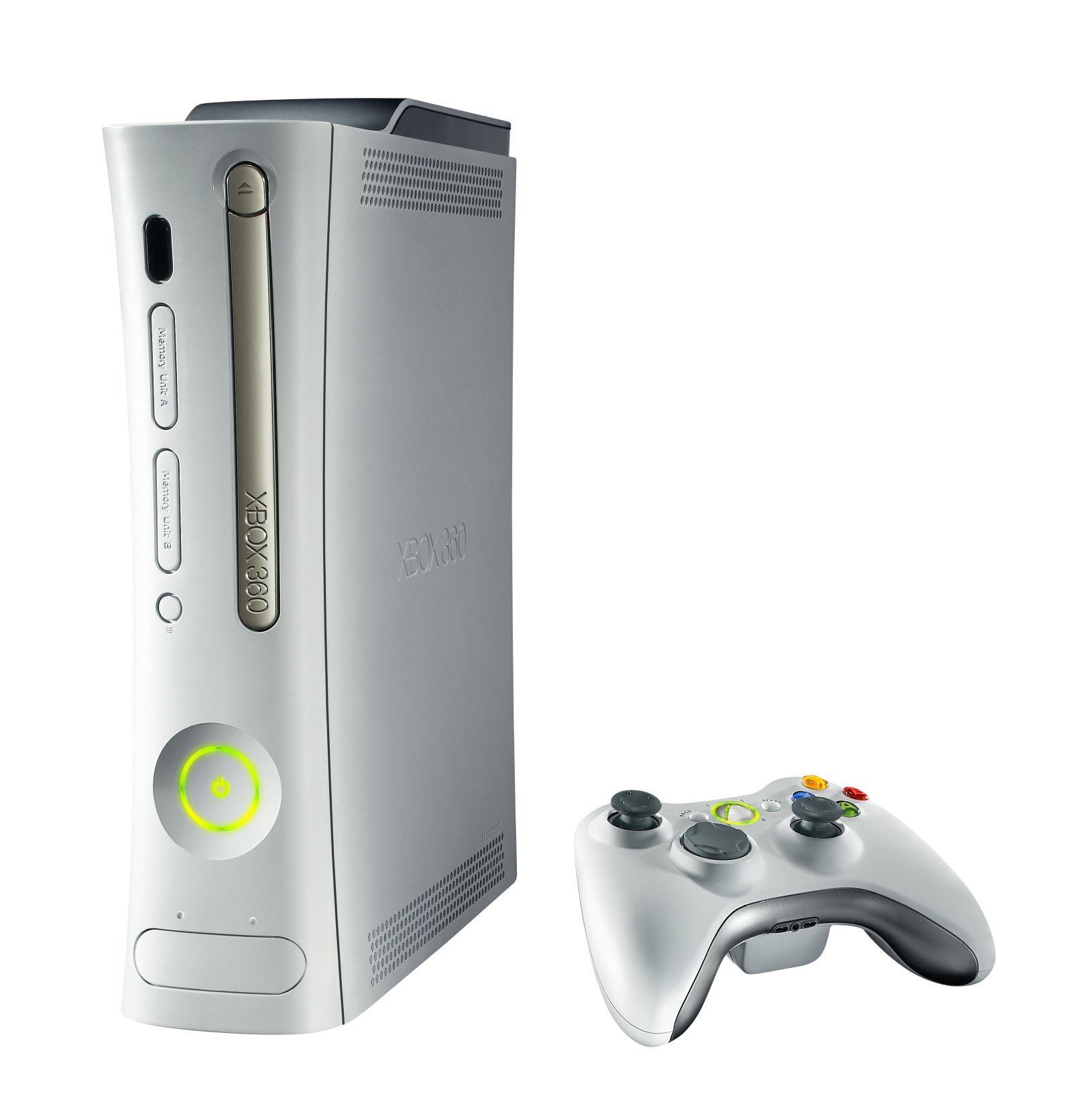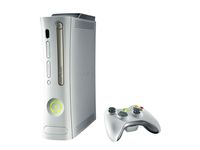Microsoft Sued Over Red Ring of Death
Apparently, a lawsuit against Microsoft exists in the Sacramento County Superior Court, alleging that an excessive number of Xbox 360 consoles have failed.


According to Dailygamesnews.com, the lawsuit also alleges that Microsoft purposely concealed the excessive failure rate in fear of losing its competitive edge over the imminent launch of both PlayStation 3 and Nintendo Wii consoles. If found guilty, Microsoft will have to publicly launch a refund program in California as well as disgorge all profits attributable to its sale of the Xbox 360.
Unfortunately, there are many factors weighing against the company while it faces a class action lawsuit. The lawsuit cites many recent articles published by websites and magazines that report on Microsoft’s knowledge of the hardware problems facing over 50% of the initial Xbox 360 consoles. Apparently, the company knew about the problem as far back as November 2005.
Although the Xbox 360 console’s financial success rate seems to contradict the company’s technical issues with its hardware, it’s generally believed to be the least reliable gaming console in this decade, perhaps overall. DailyTech spoke with a former EB Games employee during the console’s launch, discovering that 30% of its stock was defective. "The real numbers were between 30 to 33 percent,” said the former EB Games employee, adding that failure rate was even greater for launch consoles. “We had 35 Xbox 360s at launch. I know more than half of them broke within the first six months (red lights or making circles under the game discs). Two of them were dead on arrival.”
In turn, Microsoft extended the console’s warranty to three years instead of the typical one, specifically for cases of the dreaded "Red Ring of Death" (technically called General Hardware Failure). Initially the warranty covered the consoles manufactured in 2005, however that plan has extended to consoles built within the last year. Since the console’s initial release, Microsoft has steadily worked on improving the hardware, most notably implementing a new 2nd heatsink/pipe technology to provide additional cooling for the Xenos GPU.
The recent lawsuit is not the first Microsoft has had to face in regards to the Xbox 360. One consumer filed a class action lawsuit against Microsoft last year in Fort Lauderdale, Florida. Rather than complaining about hardware failure, this lawsuit focused on the damage to game disks caused by the console’s drive, another problem the Xbox 360 has endured since it’s initial launch. The lawsuit claimed that the console was "negligently designed and manufactured in that the Console’s laser disc reading assembly contacts and scratches the video game discs during normal and intended operation and use." Another consumer filed a class action lawsuit in November 2006, claiming that an update patch "bricked" his Xbox 360 console, seeking over $5 million in damages and to force Microsoft to repair all damaged consoles for free.
As of now, the failure rate has dropped significantly thanks to a redesigning of the motherboard and the new falcon 65nm chip. Currently Xbox 360 models -from Arcade to Elite- should feature the redesigned hardware with a failure rate now below 15%. Still, console errors are not uncommon, as many consumers still endure video errors, hard drive failures, or other technical issues associated with one red light flashing. Those outstanding problems may hinder Microsoft’s defense even though the overall statistics show improvement over the 1st generation of consoles.
Get instant access to breaking news, the hottest reviews, great deals and helpful tips.
Kevin started taking PCs apart in the 90s when Quake was on the way and his PC lacked the required components. Since then, he’s loved all things PC-related and cool gadgets ranging from the New Nintendo 3DS to Android tablets. He is currently a contributor at Digital Trends, writing about everything from computers to how-to content on Windows and Macs to reviews of the latest laptops from HP, Dell, Lenovo, and more.
-
NuclearShadow I think Microsoft deserves to be sued over this. Its clear that they pushed out defective hardware with full knowledge. They are very lucky that consumers nowadays don't seem to care to much about the quality of things. I can guarantee you that if this failure rate was in one of the older consoles the console would have been a complete failure.Reply -
blackened144 I dont know about a lot of these failures.. My friend complained when his first died.. I was at his house and he showed me the sealed cabinet that he kept it in.. It had to be almost 150 degrees in there, but he kept protesting that had nothing to do with it.. I helped him remove the front glass door and the backing to the cabinet, and his new 360 has been alive over 2 years.. Im sure there are a few unit that are flat out defective, but Im sure there's more than a few that are end user related.Reply -
This is not going to fly, because they are fixing them for free. If this came, before they had the replacement program in place, then they would be in a lot of crap.Reply
-
techtre2003 I'm sure not providing adequate cooling definitely shortened the life of a lot of those consoles; but I'm sure that a lot of them were defective. I myself am on my third xbox. The first was an ebay purchase so no surprise it failed after 2 weeks. The second one died after about 50 hours of 1 hour or so gaming sessions. My current one has about 20 hours on it, and it's already red ringed on me twice and has come back to life. I'm just waiting on it to die permanently. I keep the xbox on top of an entertainment stand (totally open) away from the wall and any other electronics and it still gets hot and has the fan running constantly. They just aren't designed to dissipate the heat they generate.Reply
What I found funny about the article is that the lawsuit calls for Microsoft to "disgorge all profits attributable to its sale of the Xbox 360". Am I wrong or haven't they lost quite a bit of money on the 360? -
I think this is just speculation, a bit of conspiracy theory, and anti-MS to say they intentionally pushed out defective hardware. Over the last 25 years I have worked for several consumer electronics companies and they generally do not intentionally do this. Problems do come up, it takes time to fix and flush the manufacturing, distribution, and sales channels. MS and any other company know the real cost of problems like the ring of death and know that it cannot be just swept under the rug – if there is anything they can do to fix it they will.Reply
I did personally have this happen to my 360. I called them and had a new one within 10 days. The support calls where the best I have ever experienced, no questions asked they sent me a box to pack it, picked it up, and sent me a new one. It was an inconvenience and I wish their quality control/testing caught the problem initially, but MS handled this better than any other consumer electronics company I have experienced. This just sometimes happens with complex consumer electronics – I just don’t think many of the people complaining about this to the point of lawsuit really understand this.
-
techtre2003 I agree with Blah; I don't think MS knew they had defective hardware and pushed it out anyway. The cost to repair all of these systems is substantial and I'm sure a huge headache.Reply
My return experience was also very quick and smooth. They also sent me a free 3 month gold subscription with my new (refurbished) xbox. It's just kind of annoying that I've had to do it twice already and am anticipating doing it again very soon. It's really frustrating to get a console back that was manufactured before my previous one that has been "refurbished" to last another 3-6 months. Why not send me a new unit that has the new motherboard and 65nm chip so maybe it will last a few years?
With that being said, I still wouldn't consider suing the company over this. I mean really, $5 million because your xbox quit? Get real. I'll just be much more hesitant to buy Microsoft when the next group of consoles come around. -
Tom's sucks at reporting... "Apparently, the company knew about the problem as far back as November 2005" give me a break... While that may be true, a REAL journalist would say Allegedly, because it hasn't exactly been proven yet... give me a break, do we live in America or Russia?Reply
-
So... the free three year warranty isn't good enough? Some people are just out to try and make a buck. If you console fails you get it replaced for free... why, again, are you suing?Reply
Of course some crap like this would come from the worst run state in America, California. Someone please kick those hippies out of the union.
